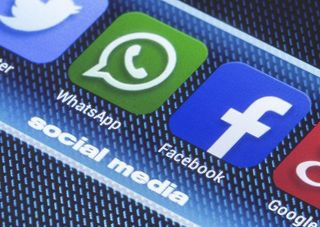BlackBerry reveals how it "fought back" against WhatsApp's decision to drop support
Legacy smartphone provider urges users to protest decision on social media

BlackBerry has hit back at WhatsApp's decision to drop support for the BB10 operating system after 2016, telling users to express their disappointment via the #ILoveBB10Apps hashtag on Twitter.
Facebook announced last month that WhatsApp would no longer support older smartphones such as Nokia and BlackBerry, pushing users towards Android, iOS and Windows Phone, which it said the 'vast majority' of people now use.
Lou Gazzola, senior marketing manager for developer relations at BlackBerry, wrote in a blog post: "We are extremely disappointed in their decision as we know so many users love these apps. We fought back to work with WhatsApp and Facebook to change their minds, but at this time, their decision stands.
"Despite this, we have worked hard to ensure our end users have the best experience in light of this decision, and are continuing to search for alternate solutions."

In response, BlackBerry will make a concerted effort to promote native apps created by its developer community with a 'Great Apps on BlackBerry' list, and invest in apps popular among its users with updates and new features.
"We look forward to new apps and new customers on BlackBerry 10 and thank our developer community for their continued strong support," Gazzola added.
When announcing the move on the seven-year-anniversary of WhatsApp, the messaging platform said: "This was a tough decision for us to make, but the right one in order to give people better ways to keep in touch with friends, family, and loved ones using WhatsApp.
Get the ITPro. daily newsletter
Receive our latest news, industry updates, featured resources and more. Sign up today to receive our FREE report on AI cyber crime & security - newly updated for 2024.
"If you use one of these affected mobile devices, we recommend upgrading to a newer Android, iPhone, or Windows Phones before the end of 2016 to continue using WhatsApp."
29/02/16: WhatsApp drops support for BlackBerry and Nokia
WhatsApp will no longer support older smartphones such as BlackBerry and Nokia after 2016, urging affected users to move to an Android, iOS or Windows Phone operating system.
The messaging app reached its seven-year anniversary last week, and took the opportunity to announce the changes, claiming that the "vast majority" of people now use at least one of the three major mobile operating systems, with others rapidly decreasing in popularity.
At the time of WhatsApp's original launch, before being acquired by Facebook in 2014, BlackBerry and Nokia accounted for 70 per cent of smartphone sales, with Google, Apple and Microsoft selling to less than 25 per cent of the market. Now, those latter three providers account for 99.5 per cent of sales.
In an official blog post, the firm said: "When we started WhatsApp in 2009, people's use of mobile devices looked very different from today.
"This was a tough decision for us to make, but the right one in order to give people better ways to keep in touch with friends, family, and loved ones using WhatsApp. If you use one of these affected mobile devices, we recommend upgrading to a newer Android, iPhone, or Windows Phones before the end of 2016 to continue using WhatsApp."
The mobile platforms being dropped are BlackBerry including BlackBerry 10 Nokia S40, Nokia Symbian S60, Android 2.1/Android 2.2 and Windows 7.1.
Caroline has been writing about technology for more than a decade, switching between consumer smart home news and reviews and in-depth B2B industry coverage. In addition to her work for IT Pro and Cloud Pro, she has contributed to a number of titles including Expert Reviews, TechRadar, The Week and many more. She is currently the smart home editor across Future Publishing's homes titles.
You can get in touch with Caroline via email at caroline.preece@futurenet.com.





